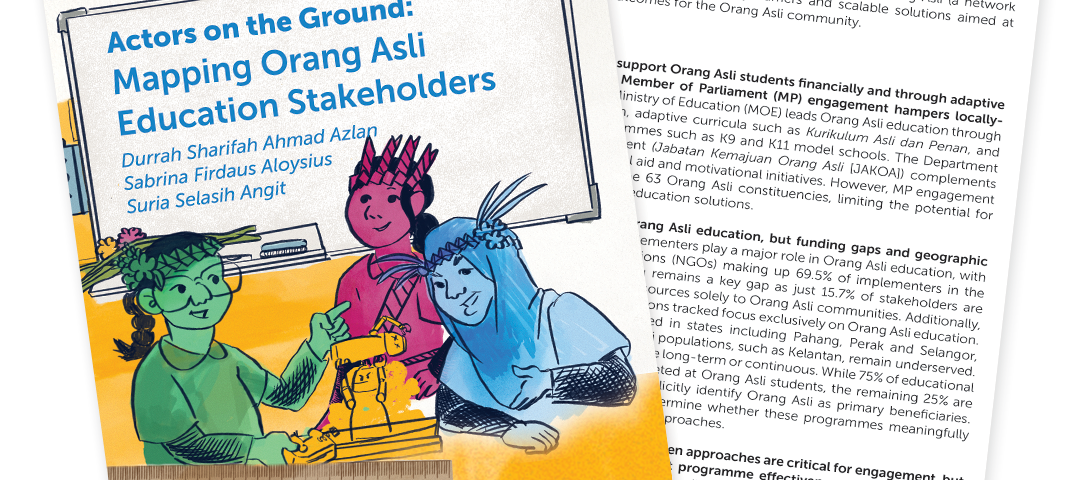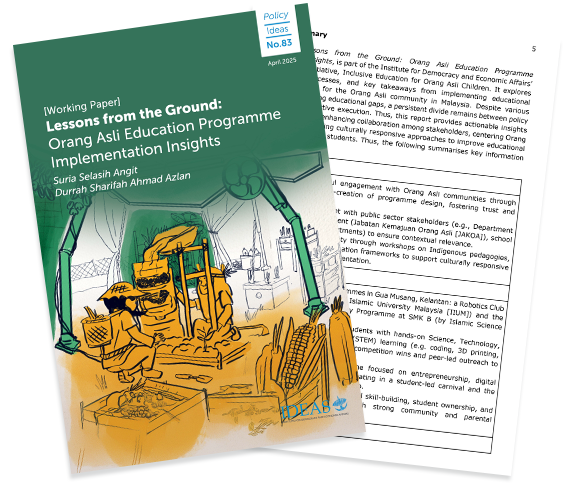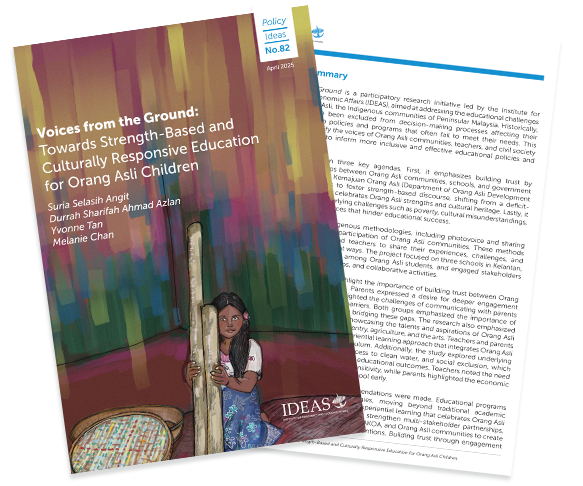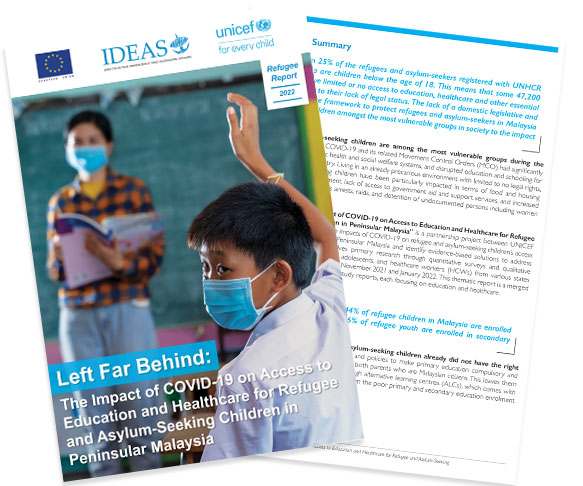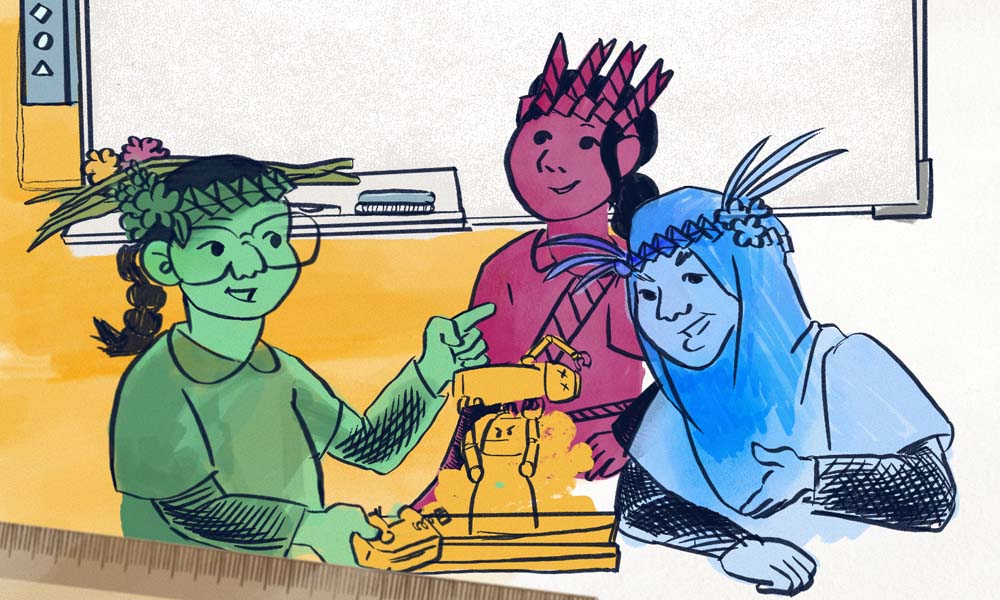
Brief IDEAS No. 43 –
Actors on the Ground: Mapping Orang Asli Education Stakeholders
Authors: Durrah Sharifah Ahmad Azlan, Sabrina Firdaus Aloysius, and Suria Selasih Angit
This policy brief offers a comprehensive analysis of the stakeholders involved in Orang Asli education, mapping their roles, initiatives, and the challenges they face. The following are key findings from the paper derived from 70 stakeholders and 110 programmes identified:
- Government Efforts: The Ministry of Education (MOE) leads Orang Asli education through infrastructure, adaptive curricula, and support programs. JAKOA provides financial aid and motivational initiatives. Member of Parliament (MP) engagement is uneven.
- Non-State Actors: NGOs are major implementers (69.5%), but funding is a key gap, making up just 15.7% of overall stakeholders. Few funders focus solely on Orang Asli communities. Most initiatives are in Pahang, Perak, and Selangor, while states such as Kelantan are underserved. Most initiatives are long-term or continuous, calling for sustained funding and M&E processes. Most educational programs target Orang Asli students, but some are broader in scope.
- Community Insights: Culturally relevant, community-driven approaches are essential. Successful programs involve trust-building, sustained relationships, and mother-tongue education. Implementation challenges include bureaucracy, limited political support, unclear legal frameworks, misalignment with funder expectations, and lack of reliable data.
Achieving equitable education for Orang Asli children demands sustained collaboration, culturally grounded approaches, and targeted support in underserved regions. By aligning government, civil society, and private sector efforts, stakeholders can create inclusive, long-term solutions that empower Orang Asli communities and uphold their right to quality education.
